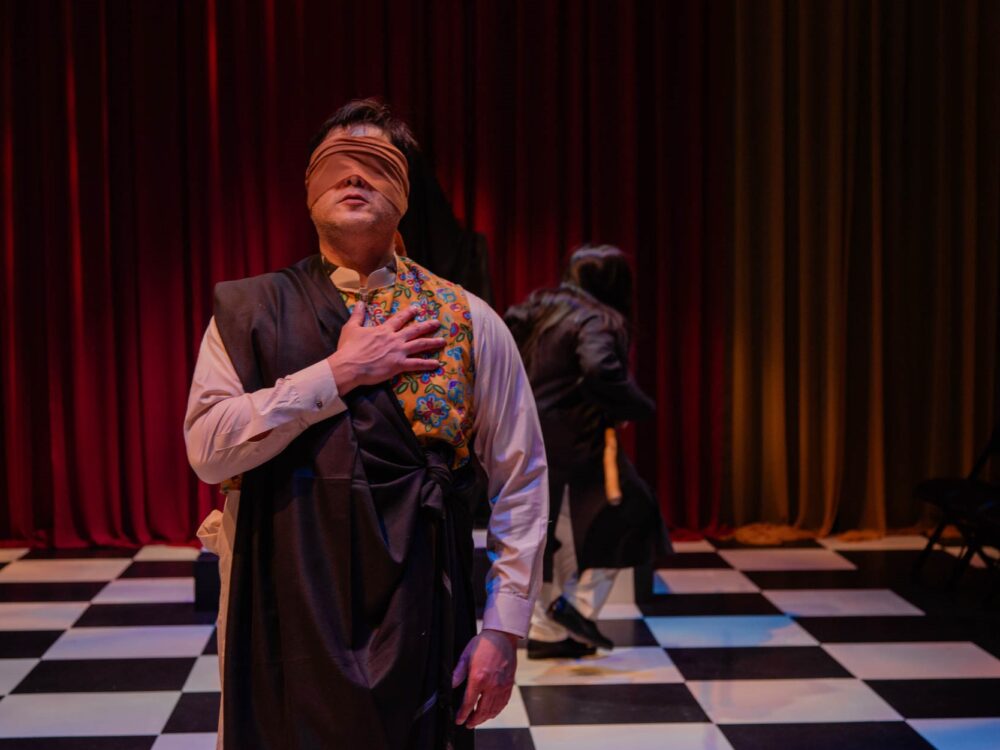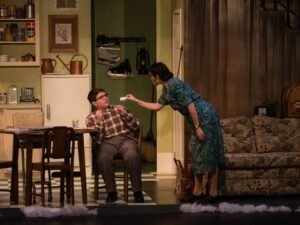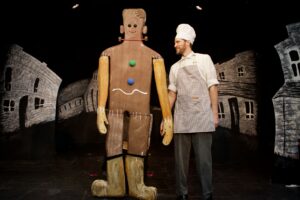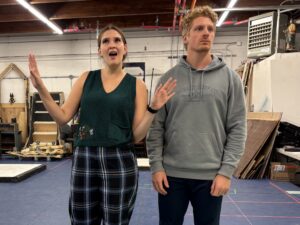A work by the man sometimes called “England’s national poet” has received a multilingual makeover.
Never Never Shakespeare, Gordon Tootoosis Nīkānīwin Theatre (GTNT) and La Troupe du Jour have partnered together to produce an adaptation of Shakespeare’s King Lear (simply titled Lear) with a truly unique twist: the show will be performed in a combination of English, French and Cree.
“We have a beautiful balance that happens between these actors and characters,” said Jennifer Dawn Bishop, the artistic director of GTNT and the co-director of Lear. “I was really excited about this concept and what highlights the language … if we’re going to put something in, it’s going to be in a meaningful way.”
The play follows Shakespeare’s original plot, but in this version the three languages flow freely among the characters. Bob Wicks, the creative director of Never Never Shakespeare and the co-director and dramaturge of Lear, said the different languages spoken in the show add a layer that doesn’t exist in the original.
The languages that different characters speak commonly and publicly versus the language they speak privately or to those they know best — like the titular King Lear speaking French to his favourite and youngest daughter Cordelia — give the audience clues through each interaction.
“It gives a layer of the relationships in the play, and how language can be used as a tool or a weapon to include or exclude people,” Wicks said. “Immediately, there’s a relationship when two people start speaking the same language that wasn’t set up as the language the scene started in.”
The idea for a trilingual Shakespeare adaptation originally came from Wicks. As he put it, Wicks was intrigued by the cultural language differences between English and Cree when an acting student he was working with told him there were simple Cree words for long and involved processes he was presenting to his students.
From there, Wicks connected with the Indigenous-led GTNT and La Troupe du Jour, the only professional French-language theatre company in the province, and the Lear project was born.
In addition to the production being in three languages, there will be no subtitles present or projected to interpret for the audience. Bishop emphasized that they were “never interested” in subtitles from the beginning, since it would take away from the performances if the audience was asked to read along.
“A lot can be done with vocalization and how the characters present themselves on stage,” she said. “Even if you’re an audience member that isn’t fluent in any of the languages … you’re drawn into the beauty of the moment.”
Both Wicks and Bishop said the show draws in the audience in a new and more dynamic way. In the same way only a few audience members are likely to understand all three languages in the play, most of the characters are not expected to either.
“I don’t think it should be a priority to give everyone in the audience the same experience, but they’re having their own experience at the same time as everyone else,” Wicks said. “That collective, yet individual experience is valuable.”
Wicks said Shakespeare’s many well-known plays are not without their issues, especially as theatre continues to explore new and non-colonial works.
But he said if he was going to justify tackling Shakespeare now, a project like this that takes the classic work and makes it something that will challenge the mindset of the audience is the way he wanted to do it.
“I’d love for people to walk out of the theatre with a new relationship with the unknown. Rather than seeing something they don’t fully understand as bad, dangerous, and/or wrong, they can it see it as a place of opportunity, learning, and laughter,” Wicks said.
Lear runs at the Persephone Theatre Backstage Stage until May 12. Tickets can be purchased online at persephonetheatre.org.






